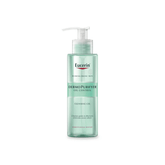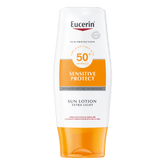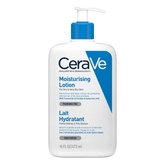How Do I Choose the Right Sunscreen in Nigeria?
In Nigeria's hot sun, protecting your face isn't just a nice thing; it's a must. The sun's intense rays constantly hit your skin as you walk through the busy streets of Lagos or enjoy the warm breezes along the coast of Calabar. In this busy African country, where the sun can be very harsh, picking the right sunscreen is vital to protecting your skin's health and vigour.
But amidst the various options lining store shelves, how do you discern which sunscreen best suits your needs? Don't worry—we'll help you navigate the confusing world of SPF ratings, ingredient lists, and how to apply sunscreen. Here are some tips that will help you choose a sunscreen that will protect you and fit easily into your daily life.
What is a sunscreen?
Sunscreen is your shield against the sun's powerful rays. You put a special lotion, gel, or spray on your skin to keep it from getting burned or hurt by the sun. Sunscreen blocks or absorbs the sun's dangerous ultraviolet (UV) rays. There are two main types of UV rays: sunscreen protects you from UVA and UVB. UVA rays can cause rapid skin ageing, while UVB rays are responsible for sunburns.
Soap and sunscreen protect your skin from UV rays by reflecting or absorbing them before they hurt your skin cells. This helps to reduce your chance of sunburn, skin cancer, and premature ageing. Sunscreen comes in different strengths, which are measured by the SPF (Sun Protection Factor) rating. The higher the SPF, the better it blocks UVB rays. Some sunscreens also have a PA grade that tells you how well they block UVA rays.
SPF in sunscreen
SPF, or Sun Protection Factor, is a number that tells you how well a sunscreen protects you from UVB rays, which cause sunburn. The higher the SPF number, the more protection the sunscreen offers.
For example, if you usually get sunburned after 10 minutes without sunscreen, sunscreen with SPF 30 would theoretically allow you to stay in the sun 30 times longer (about 300 minutes) without getting burnt.
PA in sunscreen
SPF only rates UVB protection, not UVA protection. UVA rays can also damage your skin and contribute to premature ageing and skin cancer. This is where PA, which stands for "Protection Grade of UVA," comes in. PA is a system used to measure the level of protection a sunscreen offers against UVA rays. It protects against UVA rays better if there are more plus signs (+) next to the PA grade.
To protect yourself from UVB rays, look for a sunscreen with a high SPF rating. For UVA ray protection, look for a sunscreen with a high PA rating. This way, you can enjoy the sun in Nigeria without stressing about damaging your skin.
Two types of sunscreen
Chemical and physical sunscreen are the two main types of sunscreen. A few different kinds protect your skin from the sun in slightly different ways.
- Chemical sunscreen has ingredients that take in UV light and turn it into heat, which the skin lets out. Sunscreens like these often have ingredients like oxybenzone, avobenzone, and octinoxate.
- On the other hand, physical sunscreen, also known as mineral sunscreen, includes active mineral ingredients like zinc oxide or titanium dioxide. You don't take these ingredients into your skin; instead, they sit on the skin, reflecting and scattering UV rays away from it.
Both types of sunscreen can provide adequate protection against the sun, but there are some differences to consider. Chemical sunscreens are usually lighter and easier to apply. On the other hand, physical sunscreens may feel harder and leave a white cast on the skin. Physical sunscreen is also better for people with sensitive skin because it is less likely to irritate or cause allergic reactions.
5 common misconceptions about sunscreen
Regarding sunscreen, several misconceptions may lead you to misunderstand its effectiveness or proper usage. We bust some popular myths below:
- You don’t need sunscreen on a cloudy day. However, UV rays can indeed get through clouds, so you still need sunscreen to protect your skin from damage.
- You don't need to reapply sunscreen if it's waterproof. Waterproof sunscreen only works for a certain amount of time, so you must reapply it often, especially after swimming, sweating, or drying off with a towel.
- Sunscreen with a higher SPF gives you a lot more protection. There isn't a big difference in protection between SPF 30 and SPF 50, even though sunscreens with higher SPF amounts offer more protection. It's more important to use and reapply a lot of sunscreen.
- Dark-skinned people don't need sunscreen. Skin cancer and burns can happen to anyone, no matter what colour their skin is. Darker skin naturally blocks UV rays better, but sunscreen is still needed if you're going to be in the sun for a long time.
- You only need to apply sunscreen to exposed skin. You should put sunscreen on all your exposed skin, even places like the ears, neck, and head (if your hair isn't covering them).
Things to consider when choosing sunscreen
When picking the right sunscreen, you must consider several factors to ensure optimal protection and compatibility with your skin. Keep these important things in mind:
- Your skin type and how sensitive it is: Consider your skin type and any particular sensitivities or allergies you may have. For instance, if you have oily or acne-prone skin, you might like light sunscreen that doesn't clog pores.
- Climate and sun exposure: Think about the weather and how much sun your area gets. If you live in a hot and sunny environment like Nigeria, you may need sunscreen with a higher SPF and water-resistant properties for extended outdoor activities.
- Water resistance: If you plan to be in the water or sweat heavily, opt for a water-resistant sunscreen that can withstand these conditions and keep its effectiveness.
- Ingredients to avoid: Watch out for ingredients like oxybenzone and octinoxate that might hurt your skin or harm your health. Look for sunscreens labelled as "reef-safe" if you'll be swimming in ocean areas to protect marine ecosystems.
- Take skin problems into account: If you have specific skin conditions, like acne or eczema, choose a sunscreen formulated for sensitive skin that is gentle and non-irritating.
Choosing the right sunscreen in Nigeria
Selecting the appropriate sunscreen is crucial for safeguarding your skin's health amidst the intense tropical climate. Here's how to sort through all the choices and pick the best sunscreen for you:
- Because the sun is intense in Nigeria, choose a sunscreen with an SPF of at least 30 to protect your skin from UVB rays. Consider higher SPF options for prolonged outdoor activities or if you have fair or sensitive skin.
- Sunscreens that say "broad-spectrum" on the package will protect you from both UVA and UVB rays. This ensures comprehensive defence against sunburn, premature ageing, and skin cancer.
- When picking sunscreen, consider cultural preferences and lifestyle factors. Choose formulas that aren't greasy, absorb quickly, and won't leave a sticky film behind so you can go about your daily life without any problems.
- Look into sunscreen options that are easy to find in Nigeria. Consider things like cost and ease of use. Look for reputable names that meet international standards for sun protection.
- To eliminate common skin problems in Nigeria, like hyperpigmentation or melasma, choose sunscreens that contain ingredients known to lighten the skin, like niacinamide or vitamin C.
Remember to put on a lot of sunscreen and reapply it throughout the day for the best protection against sun damage.
5 tips for application and usage
Ensuring proper application and usage of sunscreen is vital to maximizing its efficiency and protecting your skin from the sun's harmful rays. Here are some essential tips to keep in mind:
- Apply sunscreen to your face, neck, arms, legs, and any other visible skin. Use enough sunscreen to cover the entire area evenly, aiming for at least a teaspoon for the face and a shot glass-sized amount for the body.
- Reapply sunscreen every two hours or more often if you're swimming, sweating a lot, or drying off with a towel. Even if your sunscreen claims to be water-resistant, it's essential to reapply regularly to maintain protection.
- Use sunscreen as part of a larger plan to protect yourself from the sun. Sunscreen is only one part of a complete plan to protect yourself from the sun. A good time to be outside in the sun is between 10 a.m. and 4 p.m., so find some shade and wear safety gear like sunglasses and hats with wide brims.
- Sunscreen can lose its usefulness over time, so check the expiration date on the bottle and throw away any that has passed it. If you use expired sunscreen, it might not protect you well enough.
- When choosing sunscreen, consider what you'll be doing and where. For outdoor activities like swimming or sports, choose a water-resistant sunscreen. For daily use, choose a light formula that doesn't feel greasy and is easy to add to your skincare routine.
Conclusion
We at Nectar Beauty Hub know how important it is to pick the right sunscreen for the Nigerian sun to protect your skin. With our vast range of high-quality sunscreen products tailored to your specific needs and preferences, you can confidently embrace the outdoors while keeping your skin safe and healthy.
As the most affordable beauty shop in Nigeria, Nectar Beauty Hub is dedicated to providing you access to top-notch skincare essentials at unbeatable prices. Whether you're searching for SPF-packed sunscreens, nourishing creams, or rejuvenating serums, we've got you covered.
Discover our range of sunscreen products online at Nectar Beauty Hub. This is the first step towards glowing skin. You don't have to do anything to get your favourite sunscreen sent right to your door.

















